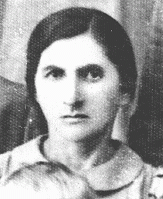You searched for: ���������������������������������������������fuk7778���your
<< Previous | Displaying results 81-90 of 163 for "���������������������������������������������fuk7778���your" | Next >>
-
Suse Gruenbaum Schwarz describes preparation for and hiding during a Nazi raid
Oral HistorySuse's family moved to the Netherlands in 1933. After invading the Netherlands in 1940, the Germans imposed anti-Jewish measures. From 1942, Suse could not attend school. The family went into hiding in 1943, Suse and her mother on one farm and her father on another. Later, her father and another couple came to hide with Suse. They were liberated in 1945. Suse arrived in the United States in 1947.
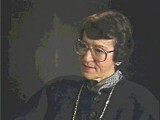
-
Cecilie Klein-Pollack
ID CardCecilie was the youngest of six children born to a religious Jewish family in the Czechoslovakian town of Yasinya. Her father, who was from Poland, taught private lessons in math and German. The family owned a small grocery store, which Cecilie's mother managed. 1933-39: Cecilie's father died in 1934 when she was 9. In March 1939 Hungary, which was sympathetic to Nazi Germany, annexed the area of Czechoslovakia where they lived. One day, Cecilie arrived home to find her mother and sister had been arrested…
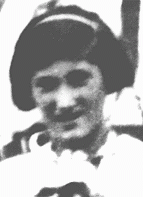
-
Saul Ingber
ID CardSaul was born to a Jewish family in the small northern Transylvanian town of Moisei, famous for its 18th-century monastery, to which many Christians came on pilgrimage. Saul's family was religious. His father transported lumber to several mills in the area. 1933-39: Saul and his brothers attended a Jewish school held at their neighbor's home. A rabbi led them in prayers and they learned quotations from holy texts. After his schooling he needed to learn a trade, so he decided to become a tailor. Jews were…
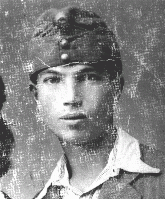
-
Kato Dicker Nagy
ID CardThe fourth of five children, Kato was born to a Jewish family who owned a successful furniture store and lumberyard in Ujpest, five miles from Budapest. As a young girl, Kato enjoyed singing and playing the violin in her family "orchestra" in their large home. She was also athletic, and loved to swim, bicycle and play tennis. Best of all, Kato enjoyed rowing on the Danube with her friends. 1933-39: Newly married, Kato moved to Zagyvapalfalva, a town northeast of Budapest with only five or six Jewish…
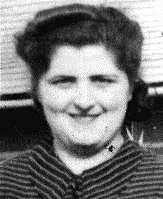
-
Herta Scheer-Krygier
ID CardHerta's Viennese mother and Polish-born father owned a successful men's clothing business in Munich when Herta was born. After Hitler's antisemitic Nazi party attempted to overthrow the German government in November 1923, the Jewish Scheer family moved to Vienna, where Herta's grandparents lived. 1933-39: Hiking was one of Herta's favorite activities. She belonged to the Zionist youth group called Gordonia, and at their meetings the members spoke about creating a Jewish homeland in Palestine. After the…
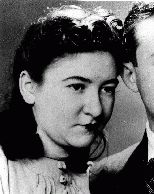
-
Abraham Lewent
ID CardAbraham was born to a Jewish family in the Polish capital of Warsaw. His grandfather owned a clothing factory and retail store, which his father managed. Abraham's family lived in a Jewish section of Warsaw and he attended a Jewish school. Warsaw's Jewish community was the largest in Europe, and made up nearly one-third of the population of the city. 1933-39: After the bombardment of Warsaw began on September 8, 1939, Abraham's family had little to eat. The stores had been reduced to rubble; they had no…
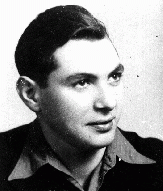
-
Ernest G. Heppner
ID CardErnest was one of three children born to a Jewish family in the commercial city of Breslau, which had one of the largest Jewish communities in Germany. His father, a World War I veteran, owned a factory that made matzah, the unleavened bread used during the Jewish holiday of Passover. Ernest was 12 when Hitler took power in 1933. 1933-39: Ernest often got in trouble at school because people called him names. "Christ-killer" and "your father kills Christian babies for Passover" were common taunts. Many…
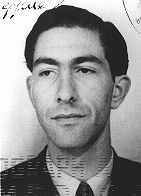
-
Heinz Rosenberg
ID CardHeinz was the youngest of three children born to a Jewish family in the German university city of Goettingen. His father owned a linen factory that had been in the family since it was founded by Heinz's grandfather. Goettingen had a small Jewish population, and only one synagogue. Heinz went to public school in the city. 1933-39: In 1933 the Nazis took power in Germany. A year later Heinz's family's factory was seized. Three SA men came to their house. An officer set a gun on the table and calmly informed…
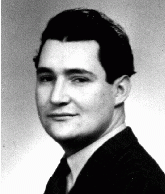
-
Isadore Frenkiel
ID CardIsadore and his wife, Sossia, had seven sons. The Frenkiels, a religious Jewish family, lived in a one-room apartment in a town near Warsaw called Gabin. Like most Jewish families in Gabin, they lived in the town's center, near the synagogue. Isadore was a self-employed cap maker, selling his caps at the town's weekly market. He also fashioned caps for the police and military. 1933-39: Isadore felt the pinch of the Depression, but although business was poor, he was able to provide for his family. Shortly…
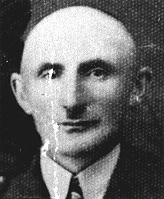
-
Sossia Frenkiel
ID CardSossia and her husband, Isadore, were the parents of seven boys. The Frenkiels, a religious Jewish family, lived in a one-room apartment in a town near Warsaw called Gabin. Like most Jewish families in Gabin, they lived near the synagogue. Sossia cared for the children while Isadore worked as a self-employed cap maker, selling his caps at the town's weekly market. 1933-39: Because of the Depression, Isadore's business had fallen off, but the Frenkiels managed to continue providing for their family.…
